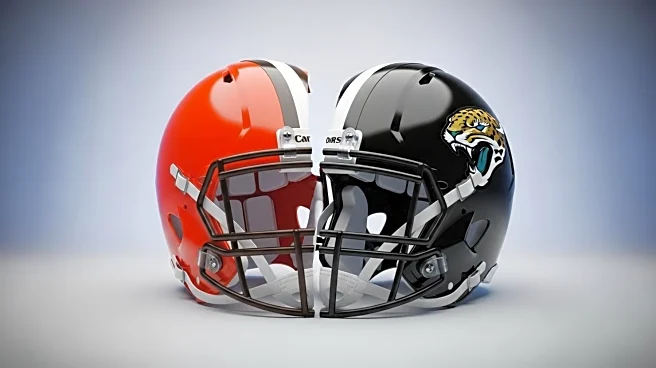What's Happening?
The Cleveland Browns have traded cornerback Greg Newsome II to the Jacksonville Jaguars, a move that involves significant financial implications for both teams. Newsome, who is playing on the fifth-year option of his rookie deal worth $13.377 million, will have the remainder of his contract, approximately $9.7 million, picked up by the Jaguars. The Browns will not owe Newsome any salary for the rest of the season but will carry a $3.7 million dead cap space due to the trade. In exchange, the Browns acquired cornerback Tyson Campbell, who signed a four-year, $76.5 million extension to his rookie contract in July 2024. The Jaguars will also carry a $6.7 million dead cap space for Campbell this season and an additional $19.52 million on the 2026 salary cap.
Why It's Important?
This trade is significant as it highlights the strategic financial maneuvers NFL teams must undertake to manage their salary caps effectively. For the Browns, acquiring Campbell means they have a new asset with a substantial contract, which will impact their financial planning for the coming years. The Jaguars, on the other hand, take on Newsome's contract, which could affect their budget flexibility. Such trades are not only about player performance but also about managing long-term financial commitments, which can influence team-building strategies and competitiveness in the league.
What's Next?
The Browns will need to make a key decision by March 23rd regarding an $11.5 million option on Campbell's contract. This decision will affect their salary cap planning and could determine Campbell's future with the team. Meanwhile, the Jaguars will integrate Newsome into their defensive lineup, potentially altering their defensive strategies. Both teams will continue to assess their roster and financial strategies as they prepare for future seasons.
Beyond the Headlines
This trade underscores the complex nature of NFL contracts and the importance of salary cap management in professional sports. It reflects how teams must balance player talent with financial constraints, which can lead to strategic trades that reshape team dynamics. The long-term implications of such trades can influence team performance and competitiveness in the league.










